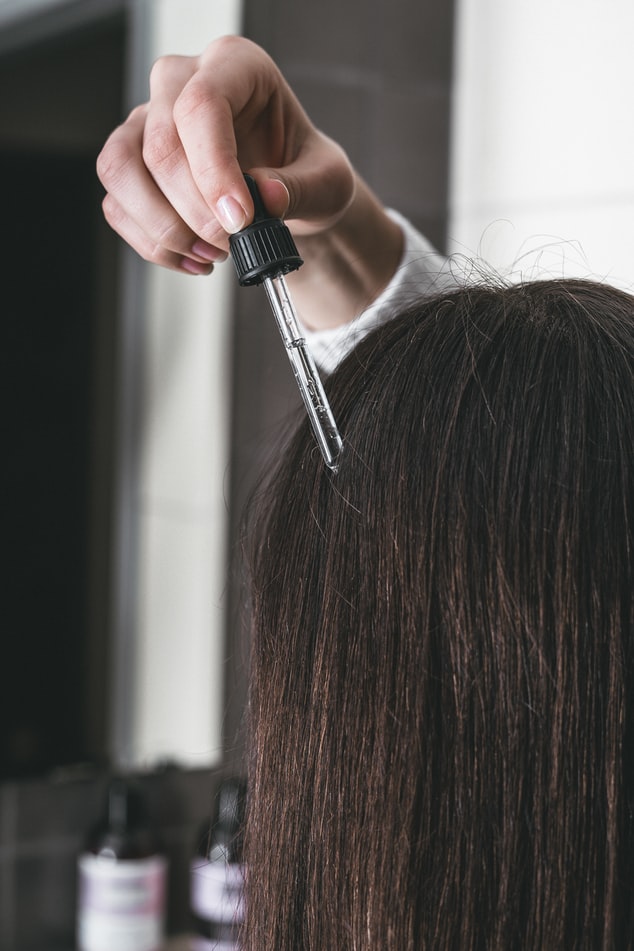Whether your hair falls out suddenly or gradually, the experience of losing hair is very distressing. In some instances, your hair may become thin. There are various reasons your hair would start falling out. The cause of the hair fall out determines if your hair grows back, requires care to prevent further damage or if you must have treatment for hair to regrow.

Causes of Hair Loss
Age
Hair growth slows as one gets older, and at a certain age, the follicles stop growing hair. As a result, hair thins, loses its color, hairlines start receding, and in extreme situations, falls out. This is why a large percentage of older people have thin grey hair or are bald.
Cancer Treatment
If you receive chemotherapy, there are high chances of losing your hair in the first few weeks of treatment. Hair loss also happens if you receive radiation treatment to your neck or head. It is recommendable to cover your head during chemotherapy treatment to prevent your hair from falling out.
Scalp infection
An infection makes your head look scaly and inflamed. Scalp infection has noticeable symptoms, and you can be able to locate it. Infected areas quickly turn to a bald spots due to loss of hair.
Hereditary
It is referred to as androgenic alopecia medically. It means you have inherited genes that make follicles shrink and stop growing hair. It is more common in women, but it affects women too.
Alopecia Areata
It refers to a disease that will develop if your immune system attacks the follicles. Once the body’s immune system attacks your hair follicles, you can lose hair on the body, including scalp, eyebrows, or eyelashes.
Childbirth and Illness
Illnesses, operations, and children often elevate the level of stress in some people. In such a situation, you may notice that your hair is falling out. This can happen in stressful moments where one has lost a loved one. Taking medication has also been associated with hair loss.
In addition, sexually transmitted infections such as syphilis and thyroid diseases increase the chance of hair fall out.
Lack of Care
Pulling on your hair and using the wrong products can eventually cause your hair to fall out. The medical term used to describe extreme pulling of hair is trichotillomania.
Effects of Hair-Loss
People who have lost their hair are likely to experience psychological distress, anxiety, and depression. Low self-esteem, heightened self-consciousness, and loss of confidence are evident in people whose hair has fallen out. Unfortunately, such a stressful experience only makes you lose more hair.
Avoidance Behavior
Often, people who lose hair develop social phobia. It becomes more challenging to associate with people, especially if the eyebrows and eyelashes are affected. You are likely to create anxiety about being judged, and that leads to suffering. You will be hesitant to attend fun social engagements frequently.
Depression
Elevated stress and anxiety level experienced for more extended periods can lead to depression. You are likely to feel demotivated from engaging in activities, lack appetite, loss of energy, and lack of sleep. As a result, the quality of your life is negatively impacted.
Low Self-Esteem
Losing hair can give you an illusion about your self-image; you end up disliking yourself. In worse scenarios, people refuse to seek treatment because they do not believe it will improve. Instead, they stress or pull the hair more, which worsens the condition.

Hair Loss Treatments
Treatment can help slow hair loss or stop the hair from falling out entirely. It is crucial to note, there are conditions that hair can grow back by itself, such as cancer. However, it is good to seek treatment to stimulate new hair growth. On the other hand, there are conditions where you must get treatment to reverse the situation and accelerate hair growth effectively.
PRP Therapy
Arguably, PRP therapy is an effective hair treatment. Platelet-rich plasma therapy (PRP) is a medical hair-loss treatment where your blood is drawn, safely processed, and then injected into your scalp.
The primary purpose of processing is to separate the components to get plasma-rich components that encourage growth factors. There are four components in the blood; plasma, red blood cells, white blood cells, and water. When injected into the follicles, plasma-rich platelets stimulate an increase in papilla cells that significantly improve hair growth.
PRP Treatment Process
It involves three steps:
- Step One: In this step, your blood is drawn and put in a centrifuge.
- Step Two: The centrifuge separates it into three, and plasma-rich platelets are used to treat and encourage hair growth. In extreme cases of damage, the spin might be done twice to increase your platelet concentration. The process takes between 10-15 minutes.
- Step Three: PRP is injected into your scalp in areas that need improvement or new hair growth.
PRP treatments are done thrice, and the treatments are between 4 weeks to six weeks apart. After therapy, you are required to have maintenance treatment after every 4-6 months.
Benefits of PRP Therapy
- Your blood is drawn, reducing the chances of diseases.
- It can be used on both women and men. People from the 18 and above age bracket can get treatment despite their gender.
- It is a safe and effective treatment, especially for people with androgenic alopecia.
- It can be used at all levels of hair loss, except entirely bald. However, it would be better to consider PRP treatment at the early stages of hair loss before it is too late.
Final Thoughts
PRP is an effective way to treat hair loss. If you wish to get PRP treatment for hair fallout issues, consider a few tips. Ensure you do not take alcohol or drugs before you for the treatment. Also, do not apply chemicals to your scalp or hair. A certified specialist should only perform the PRP treatment for safety purposes. Recovery can take weeks or months, but, you will experience more hair growth than you would have expected without the therapy.